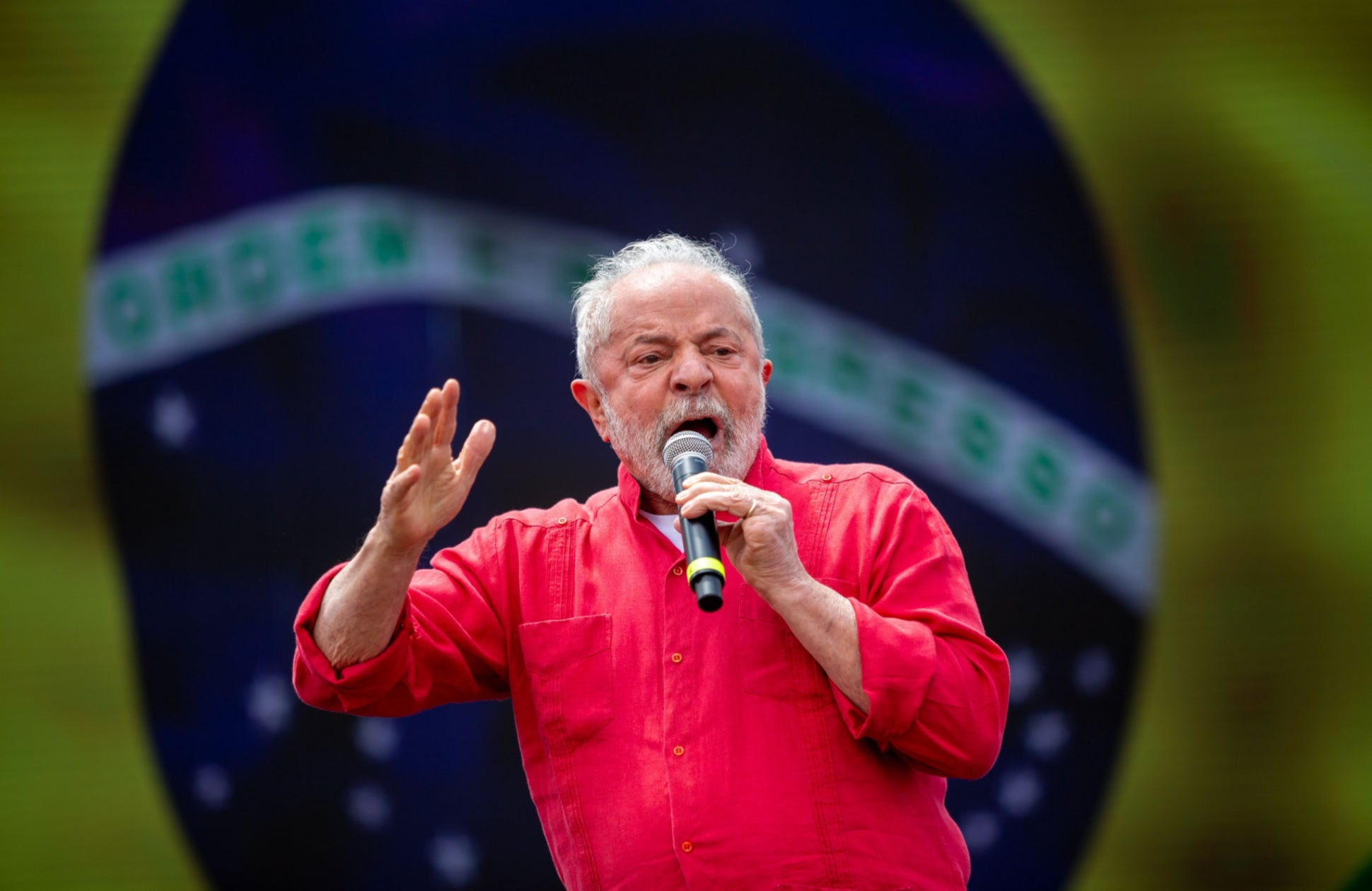
Luiz Inácio Lula da Silva has won the presidential election in Brazil, but experts warn fake news will continue to threaten stability in the country.
Jair Bolsonaro has lost the presidency after a divisive election season that saw his left-wing rival take home 50.9% of the votes on Sunday. However, “Brazil’s Donald Trump”, as Rolling Stone branded him, is unlikely to take the defeat lying down. Even before the polls closed, the soon-to-be defenestrated president made claims of voter fraud, echoing his US counterpart.

Access deeper industry intelligence
Experience unmatched clarity with a single platform that combines unique data, AI, and human expertise.
Lula da Silva served as president between 2003 and 2010. Despite leaving office with 90% approval rating, his legacy has been marred in recent years with him being involved in the criminal investigation dubbed Operation Car Wash.
The charges involved accusations of money laundering, bribes, and other corruption allegations. Hundreds of other high-ranking officials in Latin America were also caught up in the sting. He was convicted for corruption and money laundering in 2017, but a court threw out his conviction in March 2021.
Fake news plagued the election in Brazil
The presidential election in Brazil has also been fraught with problems of fake news – as everyone knew that it would be. Experts have warned for months that the vote would be fraught with misinformation campaigns.
These fears were realised during the election season, with intense misinformation campaigns and name-calling on both sides having marked the vote, as reported by CNN.

US Tariffs are shifting - will you react or anticipate?
Don’t let policy changes catch you off guard. Stay proactive with real-time data and expert analysis.
By GlobalDataBrazilian authorities ramped up their efforts to remove inaccurate information from social media websites, which sparked cries of censorship from Bolsonaro’s supporters.
For instance, Bolsonaro’s camp has been accused of peddling the lies that Lula da Silva was a devil worshiper in a video. Lula da Silva’s camp rejected the claims and the Electoral Court, the body overseeing the vote, banned the video.
Lula da Silva’s camp has released a video suggesting that when Bolsonaro visited a camp of indigenous people allegedly cooking a dead person and that the outgoing president said he’d “have no problem eating the indigenous person”. Bolsonaro’s camp said the quote was taken out of context. The Electoral Court later banned the video.
NGO Global Witness revealed earlier in October that YouTube and Facebook allowed the spread of misinformation during the election. The organisation had made a series of purposely misleading ads about both candidates during the election season.
Some of the mock ads followed in Bolsonaro’s footsteps and questioned the credibility of the election itself, while others urged people not to vote and some gave a false date for the vote. YouTube approved all of the fake ads and Facebook were about to run half, although Global Witness stressed that it withdrew the ads before they were published to avoid spreading confusion.
Misinformation waves won’t stop
Lula da Silva’s win in the election in Brazil won’t do much to stymie the flow of fake news, according to experts Verdict has spoken with.
“Lula’s victory does not spell the end for the era of disinformation and fake news in Brazilian politics,” Iain McDermott, senior digital investigations analysts at PGI, tells Verdict.
“Given razor thin margin of the results, there remains a risk that Jair Bolsonaro will attempt to undermine the integrity of Lula’s victory through allegations of electoral fraud against the TSE in the coming days and weeks – a narrative that he and supporters have been seeding for months.
“Even absent of this, Bolsonaro’s allies performed well in the congressional elections and are likely to use every tool at their disposal, including social media, to obstruct Lula’s legislative agenda.
“Brazilian politics remains highly polarised and Bolsonaro’s supporters hyper-partisan, meaning social media will remain a key disinformation battleground in the years ahead.”
Win for cryptocurrencies
Cryptocurrency champions have been quick to welcome the results of the vote, hoping the incoming president will pave the wave for crypto adoption.
“If Lula’s previous statements are anything to go by, namely that cryptocurrencies should be accepted and their adoption should be controlled appropriately by regulatory frameworks, his election victory could have positive implications for both Brazil’s crypto sector and the wider, global industry,” Jawad Ashraf, CEO and co-founder of NFT marketplace Virtua, tells Verdict.
“During a global cost of living crisis it’s also important, as he has suggested previously, that the impact of cryptocurrencies are measured to avoid any adverse effects it might bring to the wider economy.”
GlobalData is the parent company of Verdict and its sister publications.







